Menu
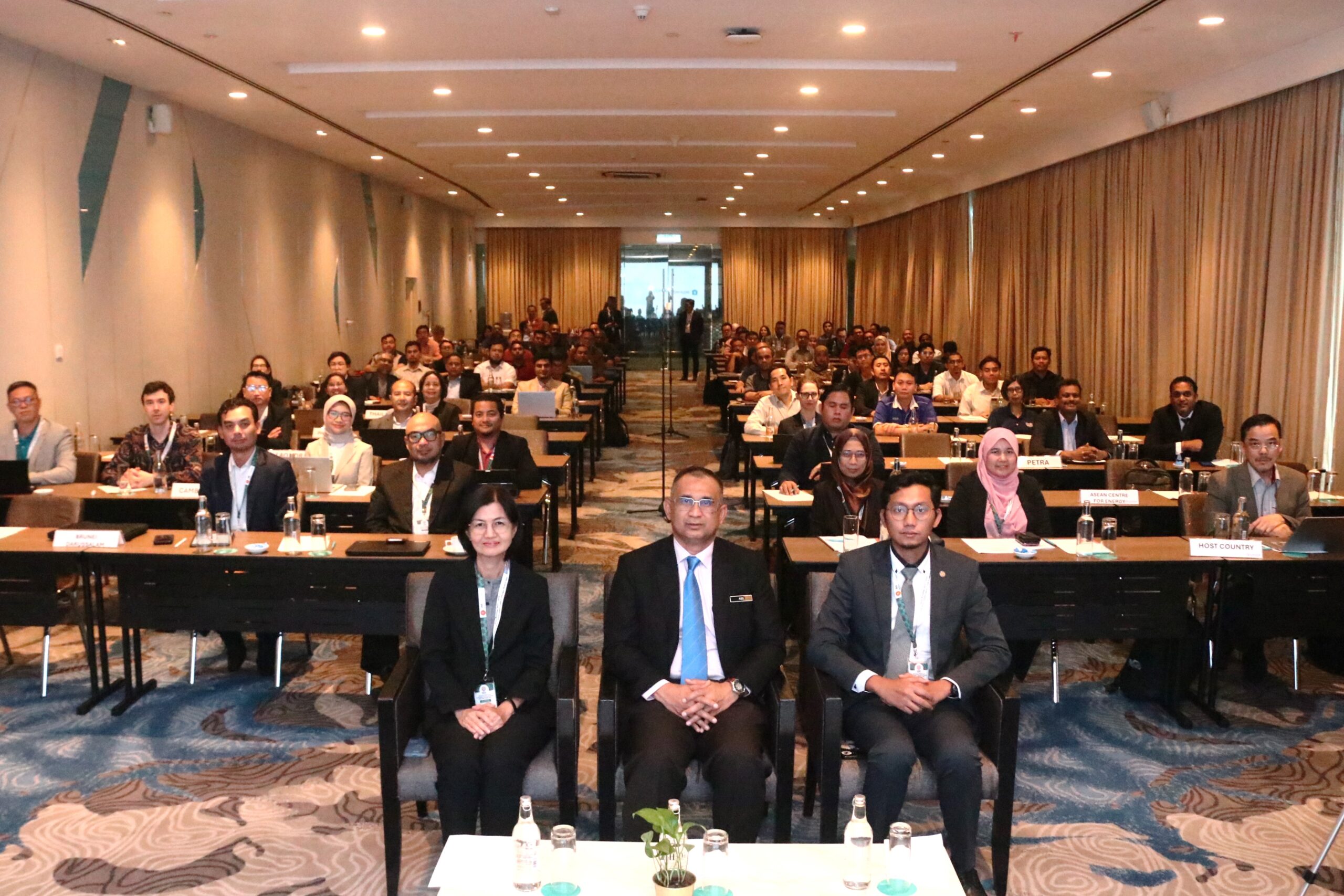
Photo 1. Workshop group photo with Rungrawee Yingyuad, DEDE, Thailand (left), Asdirhyme bin Abdul Rasib, Ministry of Energy Transition and Water Transformation, Malaysia (centre), and Dr Zulfikar Yurnaidi, ACE (right)
The ASEAN Centre for Energy (ACE) and the Energy Commission of Malaysia jointly organised the ASEAN Energy Efficiency & Conservation Workshop, titled “Driving Industrial Transformation: Policy Portfolios for Energy Efficiency and Digitalisation in ASEAN.” Held on 20 May 2025, in Putrajaya, Malaysia, as part of the 29th Energy Efficiency & Conservation Sub-Sector Network (EE&C-SSN) Associated Meeting, the workshop aimed to facilitate the sharing of views on effective policy frameworks, successful case studies, and technologies for promoting energy efficiency and digitalisation within the industrial sector.
The workshop brought together representatives from 9 ASEAN Member States, invited international organisations, dialogue partners, as well as Malaysian industry leaders, academia, and energy managers. It was attended by 92 in-person participants and 6 online attendees via the Microsoft Teams platform, with attendees being 80% men and 20% women.
The workshop commenced with welcoming remarks from the host country, delivered by Asdirhyme bin Abdul Rasib, Undersecretary of Sustainable Energy at Malaysia’s Ministry of Energy Transition and Water Transformation (PETRA). He welcomed all participants and hoped the workshop would provide valuable insight into the opportunities and challenges faced, fostering a shared commitment to making industrial systems more efficient, competitive, and sustainable by integrating digital solutions into energy efficiency efforts.
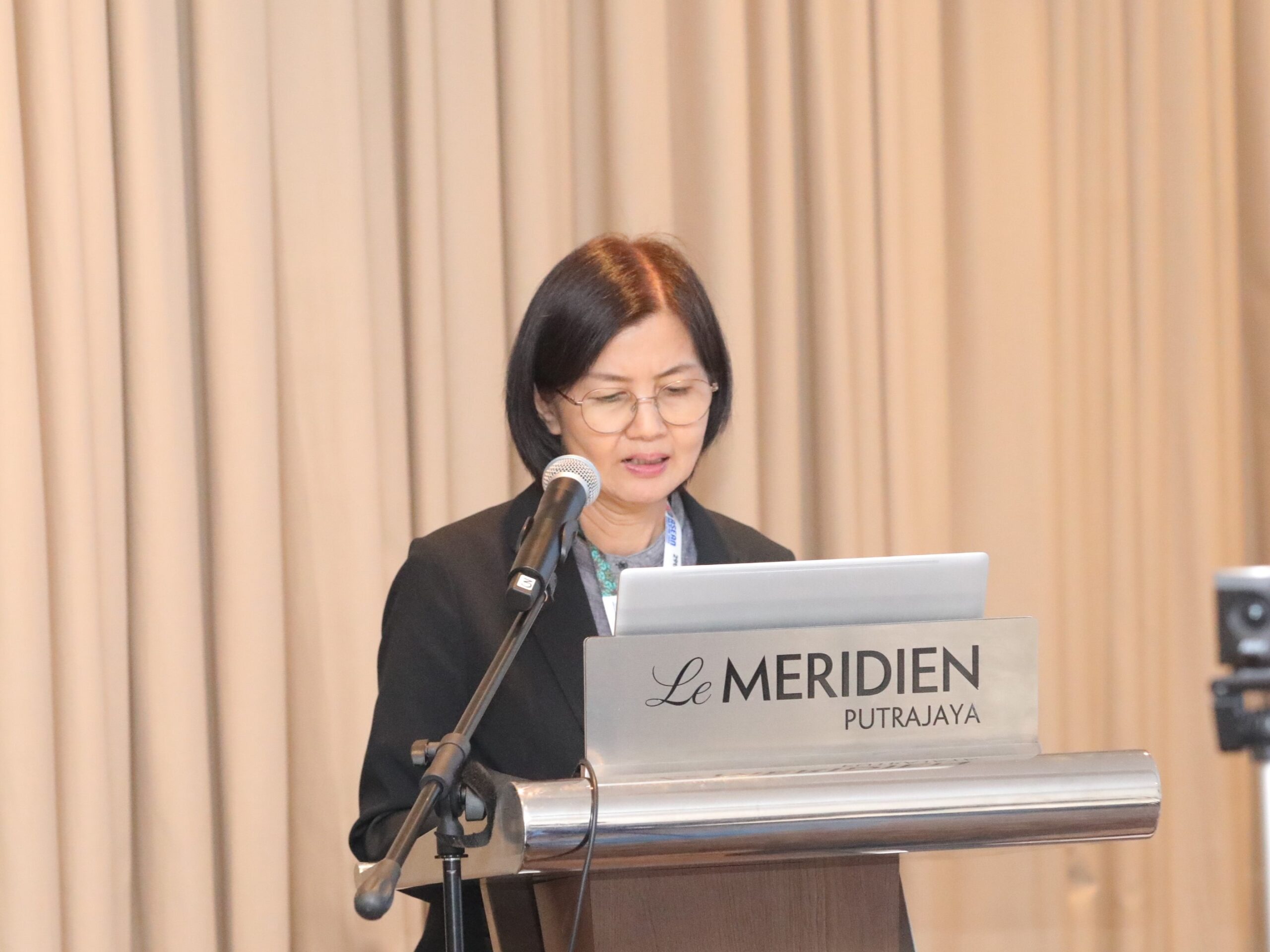 |
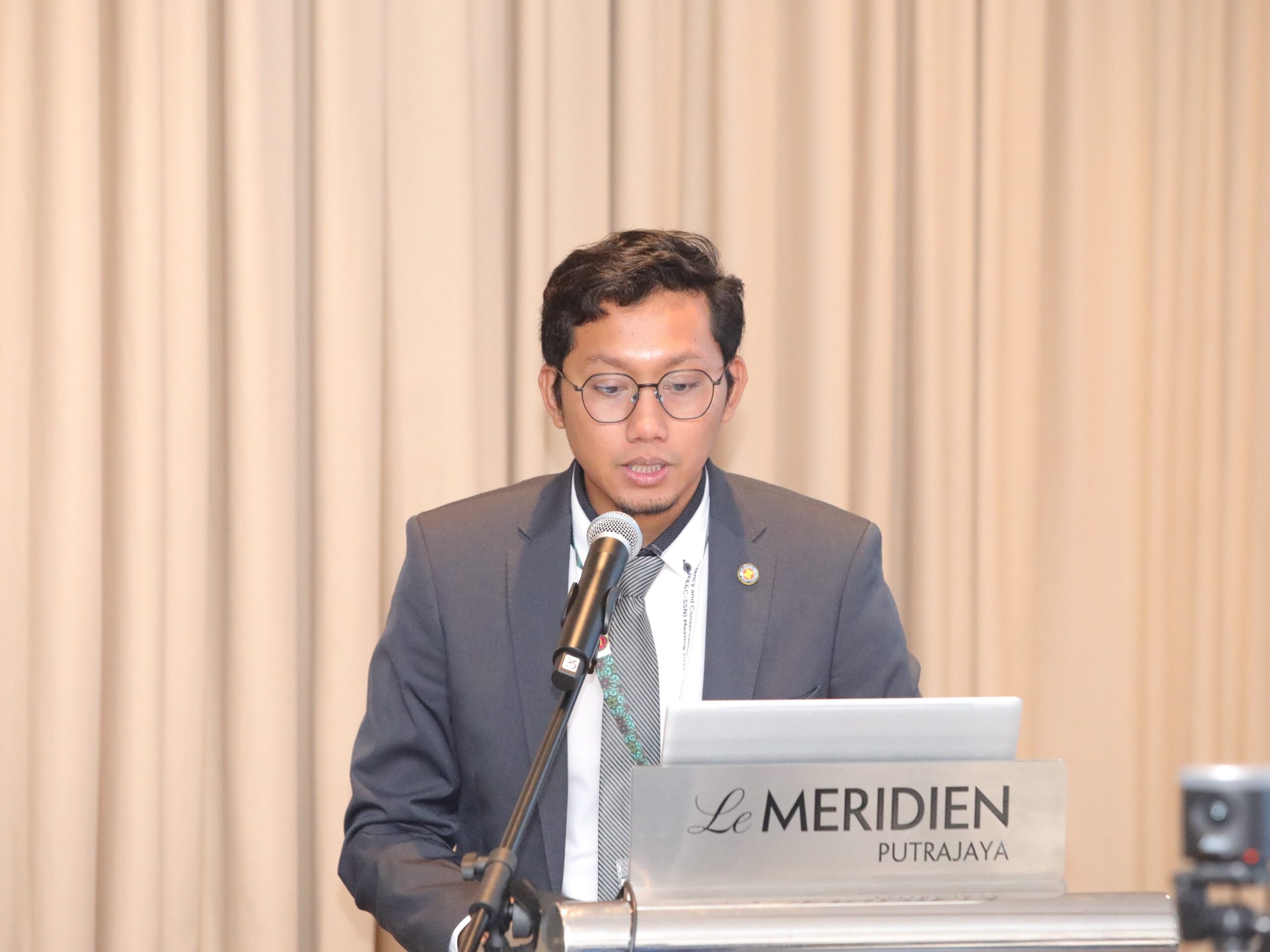 |
Photo 2. Opening remarks delivered by Rungrawee Yingyuad, DEDE, Thailand (left) and Dr Zulfikar Yurnaidi, ACE (right)
Subsequently, Rungrawee Yingyuad, Renewable Energy Expert at Thailand’s Department of Alternative Energy Development and Efficiency (DEDE) and EE&C-SSN Coordinator, highlighted that digitalisation and energy efficiency are powerful drivers for industrial transformation, offering benefits such as reduced operational costs and enhanced productivity. Lastly, Dr Zulfikar Yurnaidi, Manager of Energy Modelling and Policy Planning (MPP) & Acting Manager of the Energy Efficiency & Conservation (CEE) Department, at ACE, underscored the workshop’s significance as an ASEAN Plan of Action for Energy Cooperation (APAEC) Phase II: 2021-2025 milestone for the Energy Efficiency and Conservation Programme Area, specifically advancing energy efficiency and management in industry.
 |
 |
Photo 3. Setting scene presenter Mardika Firlina, ACE (left), and Master of Ceremony Muhammad Khoiri, Energy Commission, Malaysia (right)
Following the opening session, Mardika Firlina, Officer of CEE Department, delivered a scene-setting presentation. She highlighted the industrial sector’s projected significant contribution to ASEAN’s energy demand by 2050, underscoring the crucial role of energy efficiency and digitalisation, which requires robust collaboration among ASEAN member states and partners through key policy recommendations such as developing ASEAN-wide digitalisation standards and regional hubs. Following the opening and scene-setting presentation led by Muhammad Khoiri from the Energy Commission of Malaysia, who served as the Master of Ceremony, the floor was then given to the moderator for the subsequent panel discussion.
The first panel session, “Policy & Technology Driving Industrial Energy Efficiency and Digitalisation,” moderated by Dr Ida Syahrina Binti Shukor, Deputy Under Secretary (Energy Efficiency) at PETRA, Malaysia, offered a comprehensive overview of how ASEAN Member States strategically leverage policy frameworks and technological advancements for sustainable industrial growth. It featured panellists from Malaysia and Thailand who shared their national policy frameworks for empowering industrial energy efficiency and digital transformation.
 |
 |
Photo 4. Panel 1. Dr. Ida Syahrina Binti Shukor, PETRA, Malaysia, as panel moderator (left) and Norazrin Bin Rupadi, Energy Commission, Malaysia, as panel speaker (right)
 |
 |
 |
Photo 5. Panel 1: Calvin Woo, Malaysia Centre4IR (left), Wisaruth Maethasith, DEDE, Thailand (centre), and Prof. Dr Zainuddin bin Abd Manan, Universiti Teknologi Malaysia (right), as panel speakers
Norazrin Bin Rupadi, Deputy Director of Energy Efficiency Development at the Energy Commission of Malaysia, detailed Malaysia’s Energy Efficiency and Conservation Act (EECA), which provides a legal framework to reinforce digitalisation through Energy Management Systems (EnMS) and Energy Management Information Systems (EMIS). Complementing this, Wisaruth Maethasith, Engineer, Professional Level at DEDE, Thailand, presented Thailand’s Energy Efficiency Plan 2024, detailing its compulsory energy management standards and voluntary innovation promotion through IoT, smart technology, big data, and AI. This plan is supported by initiatives such as the Energy Conservation and Promotion Fund (ENCON Fund) and tax incentives from the Board of Investment.
Further insights were shared by Calvin Woo, Director of Malaysia Centre for the Fourth Industrial Revolution (Malaysia Centre4IR), who showcased initiatives in accelerating IR 4.0 technology adoption within Malaysian industries, focusing on transitioning industrial clusters through partnerships, policy, financing, and technology. Subsequently, Professor Dr Zainuddin bin Abd Manan from Universiti Teknologi Malaysia (UTM), underscored academia’s vital role in driving industrial digitalisation for energy efficiency, highlighting academia-industry partnerships for net zero goals and sharing the UTM 6P-Energy STAR model, which encompasses capacity building, international best practices, and open innovation.
 |
 |
Photo 6. Panel 2. Rio Jon Piter Sillitonga, ACE, as panel moderator (left) and Gunaseelan Kuppusamy, Smart Modular Technology (right), as panel speaker
 |
 |
Photo 7. Panel 2. Jason Png Hock Seng, Micron Semiconductor (left), and Renee Stephens, IEA, (right) as panel speakers
Session 2, titled “Implementing Energy Efficiency & Digitalisation: Real-World Cases and Business Value”, offered invaluable insights into the practical application and benefits of these concepts within the industrial sector. Moderated by Rio Jon Piter Silitonga, Senior Officer of the ACE’s CEE Department, the session featured winners of both the ASEAN Energy Awards and National Energy Awards Malaysia and Indonesia for Energy Management in Industry, alongside international partners, who shared global case studies on industrial energy efficiency and digitalisation.
The first panellist, Gunaseelan Kuppusamy from Smart Modular Technology, a runner-up in both the 2024 ASEAN Energy Awards and Malaysia’s National Energy Awards, shared how his company achieved results by integrating energy efficiency with digitalisation, specifically through real-time monitoring, data dashboards, and alerts. Following him, Jason Png Hock Seng from Micron Semiconductor, a winner of the 2023 Malaysian National Energy Awards, highlighted their success, which was underpinned by effective facilities system monitoring via an online Building Monitoring System (BMS), alongside the implementation of a Green Electricity Tariff and comprehensive energy-saving measures.
Complementing Malaysian industry perspectives, Renee Stephens from the International Energy Agency (IEA) shared global best practices and crucial lessons for ASEAN, highlighting how digitalisation optimises industrial production for cost savings, intelligent asset performance management, and data-driven decision-making. Further demonstrating real-world application, Ida Nurhaida, Deputy Director of Responsible Sourcing Manufacturing at PT Chang Shin Indonesia, a winner of the 2024 Clean Energy Ministerial (CEM) Award for Excellence in Energy Management, then illustrated how energy management serves as a strategic business driver through initiatives such as workplace energy awareness, automatic system implementation, and enhanced utility and motor efficiency.
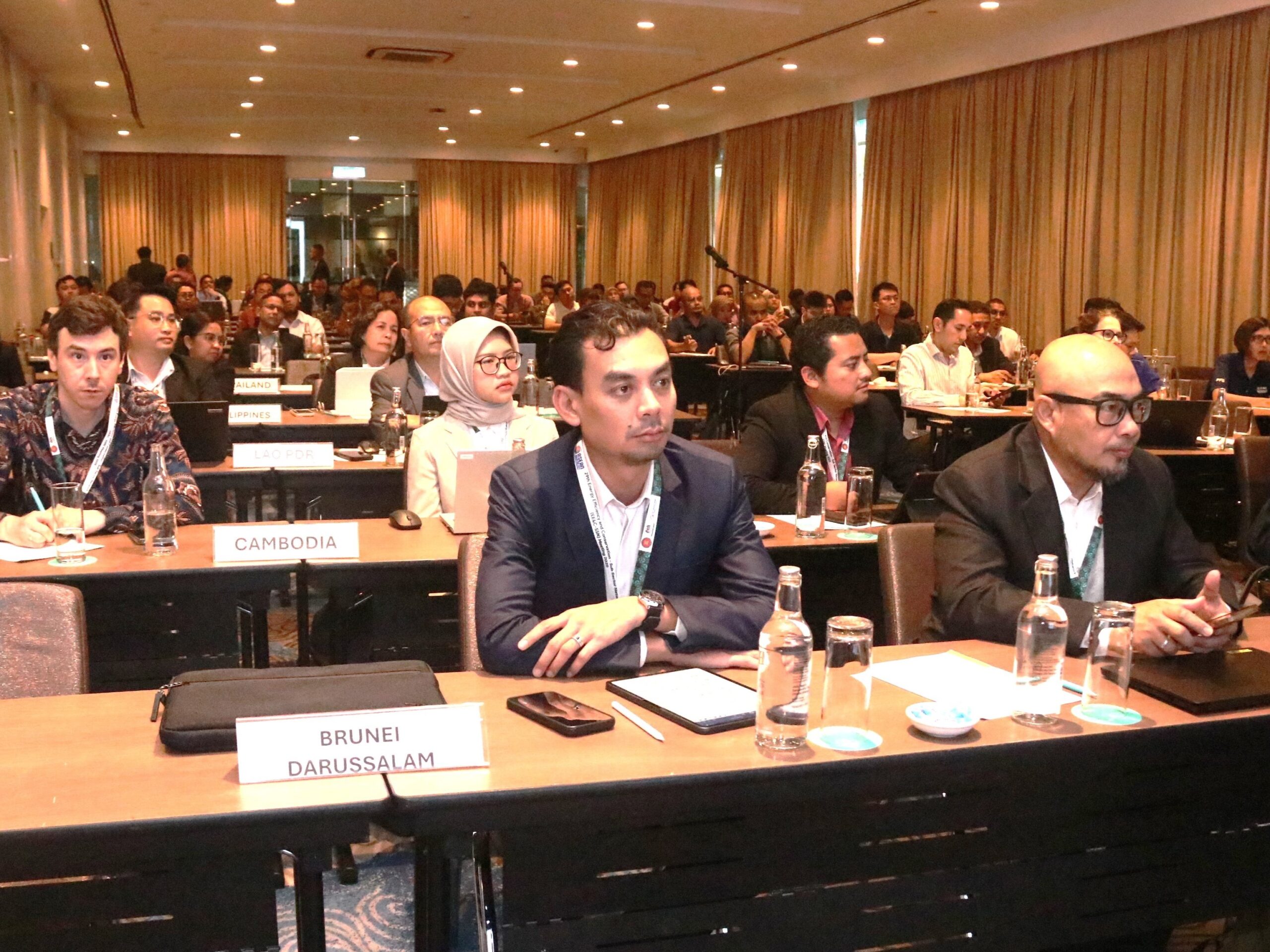 |
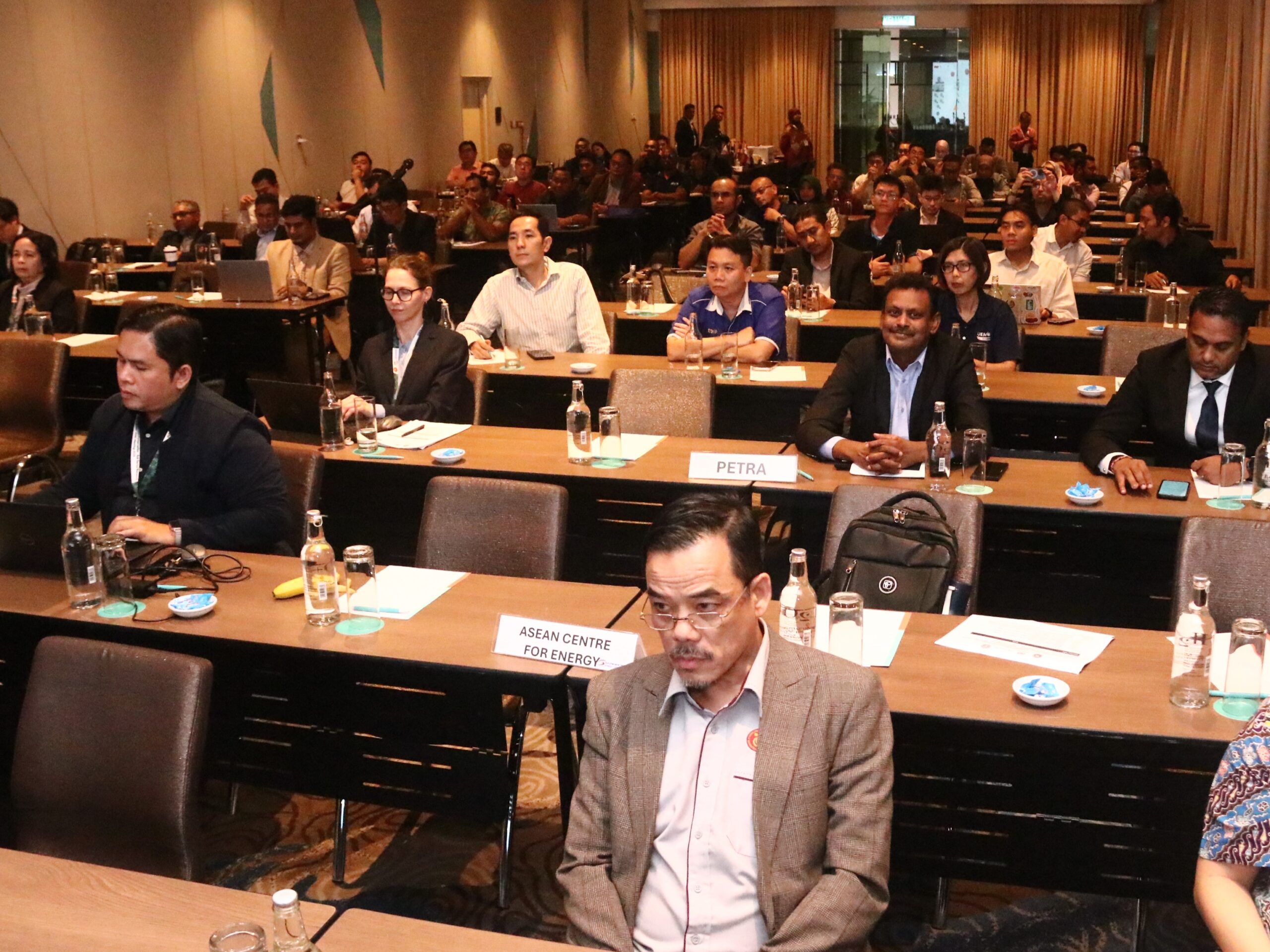 |
Photo 8. Participants of the ASEAN EE&C workshop driving industrial transformation
The workshop concluded with closing remarks from Norazrin Bin Rupadi, Deputy Director of Energy Efficiency Development, Energy Commission of Malaysia. He expressed appreciation to the panellists and workshop participants for their active involvement and valuable contributions throughout the sessions. He also hoped that the connections forged would lead to further cooperation, not only at the regional level, but also in practical implementation back in participants’ respective countries.
